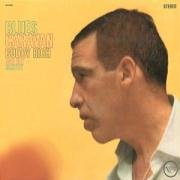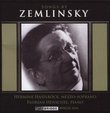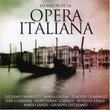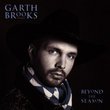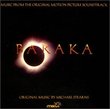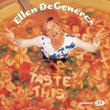| All Artists: Buddy Rich Title: Blues Caravan (Dig) Members Wishing: 2 Total Copies: 0 Label: Verve Release Date: 4/26/2005 Album Type: Limited Edition, Original recording remastered Genres: Jazz, Pop Style: Swing Jazz Number of Discs: 1 SwapaCD Credits: 1 UPC: 075021034822 |
Search - Buddy Rich :: Blues Caravan (Dig)
CD DetailsSimilar CDs
Similarly Requested CDs
|
CD ReviewsCreed Taylor and Buddy Rich R. Viehdorfer | Arvada CO | 12/12/2006 (4 out of 5 stars) "This recording, supervised by noted producer Creed Taylor on August 14th & 16th, 1961, shows Rich in a sextet setting, using the core of the Rich group that had been playing at Birdland, NYC, in 1961 and was later to accompany the drummer on a tour of the Far East, as part of a State Department-organized effort. This recording is the last of a series of small group sessions that produced such efforts as THE DRIVER and PLAYTIME, arguably two of the most sought after small group efforts by any Rich-fronted band. The recording quality is excellent, befitting Taylors' already shining reputation, and to my ears one of the most pleasing small group recordings from this period. Richs' drums, notably his cymbals, are particularly acute without being overbearing. Legend has it that Rich particularly admired this recordings' sound quality, at least as far as his efforts were concerned. The set consists of a high energy arrangement of Horace Silver's Blowing' The Blues Away, with the leader in full attendance - one can just imagine the group at Birdland performing this number. B.R. Blues, credited to Buddy, is a medium-fast swinger in a loose bop format, ably showing off the collective talents of sideman/soloists Sam Most on flute and Mike Mainieri on vibes. Caravan is the heavyweight of the date, with an extended, polyrythmic intro by the leader followed by solo's by Most on flute and Swedish trumpeter Rolf Ericson with Harmon mute; an excellent, easy swinging version of the Ellington classic. The rapport between Mainieri and Rich is evident in the formers' solo, with an extended and complex solo by Rich. This solo is well-documented among Rich aficionados, and the sound quality of the drummer's kit is well-regarded. The fade to the end is a disappointment, though. Young Blood, a Mainieri original, highlights the sextet's swinging energy, and I Remember Clifford is a vibes-voiced ballad of the Benny Golson composition, with Ericson on open trumpet. A solid addition to any jazz collection; my FOUR STAR rating is based primarily on the length of the issued recording, not on any flaw in the performances. Lastly, this was the last small group recording of Buddy Rich before the launch of The Buddy Rich Big Band in 1966." An unexpected turn for Buddy Rich allemande | Columbia, MO USA | 09/12/2007 (4 out of 5 stars) "Another review of this album written by R. Viehdorfer does an excellent job of capturing its historical, spritual, and technical aspects. I notice, though, that one track was not mentioned--an omission that makes sense in that it hardly seems at a glance to fit with the rest of the set. But it also happens to be my favorite selection on the album, so I think it bears discussion.
The track I refer to is "Late Date", and I find it significant in a number of ways. If it fails to receive notice in an overview of the recording (it is barely mentioned in the album's liner notes either), it may be because it seems a trifle at first hearing. But listen again, and find that it is a piece whose charm often masks its complexities, played with imagination and precision by Buddy's Sextet. The easy, flowing 12/8 time signature of "Late Date" lives up to its title, evoking smoky jazz clubs in the wee hours. Buddy's band plays in a deceptively easy-sounding mode, nearly concealing their strict rhythmic precision and tonal imagination as they explore all the harmonic possibilities this piece holds. Pianist Johnny Morris in particular plays in a spare fashion, seeming to make almost random, unformed statements. But notice where he goes with this: his use of suspension and anticipation is flawless. Bassist Wyatt Ruther opens the piece with a walking line, and alternates that scheme with triplet figures which perfectly complement the rolling feel of this work. And I should definitely mention Buddy, who takes an uncharacteristic back seat in this number, playing exclusively with brushes. His playing is done with customary precision, but its subtlety is not what he is normally known for. Even the solo he takes near the end is modest and understated. He seems content to just let his five bandmates have the floor, ever-present as their support but thoroughly unobtrusive. By the end of "Late Date", the band (most notably vibist Mike Manieri) seem to have found every chordal substitution and alteration possible with this work, at times nearly getting carried away with the dense clusters of notes they lay over cadential passages. But the key word in this performance seems to be, above all, taste. Long before the piece and its champions have worn out their welcome, Morris and Ruther close it with a Count Basie (one of Buddy's favorite musicians) ending. "Late Date" is not at all like anything else on 'Blues Caravan', but I love it! I hope this writing helps the prospective buyer with the decision-making process of whether or not to own this recording. But please remember that this is a limited-edition release, soon to be withdrawn by Verve. If you are at all interested, better get it soon." |

